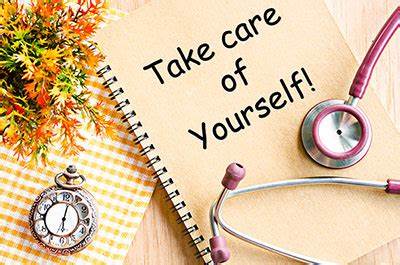Reaching the age of 50 marks a significant milestone in life. It’s a time when taking care of your health becomes even more crucial. As our bodies change with age, adopting a proactive approach to health can enhance your quality of life. Here are some essential tips to help you maintain optimal well-being and health after 50.
Prioritize Regular Health Screenings
Regular health screenings are vital once you hit 50. Early detection of potential issues can lead to better outcomes. Schedule annual check-ups with your healthcare provider to monitor blood pressure, cholesterol levels, and blood sugar. These screenings can help detect conditions like hypertension, diabetes, and high cholesterol early. Additionally, ensure you undergo age-specific screenings such as mammograms, colonoscopies, and bone density tests. These tests are crucial for detecting breast cancer, colorectal cancer, and osteoporosis, respectively. Staying on top of these screenings can help you manage and prevent serious health conditions.

Maintain a Balanced Diet and Stay Hydrated
A balanced diet is key to staying healthy after 50. Focus on consuming a variety of nutrient-rich foods. Incorporate plenty of fruits, vegetables, whole grains, lean proteins, and healthy fats into your meals. These foods provide essential vitamins and minerals that support overall health. Pay attention to portion sizes and avoid processed foods high in sugar and sodium. Hydration is equally important. As you age, your sense of thirst may decrease. Aim to drink at least eight glasses of water a day to stay hydrated. Proper nutrition and hydration can boost your energy levels and improve your overall well-being.

Stay Active and Exercise Regularly
Regular physical activity is crucial for maintaining health after 50. Exercise helps keep your heart, muscles, and bones strong. Aim for at least 150 minutes of moderate aerobic activity or 75 minutes of vigorous activity each week. Activities like walking, swimming, and cycling are great options. Additionally, include strength training exercises twice a week to maintain muscle mass and bone density. Balance and flexibility exercises, such as yoga and tai chi, can also be beneficial. They help prevent falls and improve your mobility. Staying active not only enhances physical health but also boosts mental well-being and mood.

Focus on Mental Health and Social Connections
Mental health is an essential component of overall well-being, especially as you age. Engage in activities that stimulate your mind and keep you mentally active. Puzzles, reading, and learning new skills can help maintain cognitive function. Social connections are equally important. Stay connected with family and friends to combat feelings of loneliness and isolation. Join clubs, volunteer, or participate in community events to build new relationships. If you experience signs of depression or anxiety, seek professional help. Maintaining mental health and strong social ties can significantly enhance your quality of life.
Get Adequate Sleep and Manage Stress
Sleep and stress management are critical aspects of health after 50. Aim for seven to nine hours of quality sleep each night. Establish a regular sleep schedule and create a calming bedtime routine. Avoid caffeine and electronic devices before bed to improve sleep quality. Managing stress is also crucial. Chronic stress can lead to various health issues, including heart disease and depression. Practice stress-relief techniques such as deep breathing, meditation, or yoga. Regular physical activity and hobbies can also help reduce stress levels. By prioritizing sleep and stress management, you can maintain better physical and mental health.

Stay Up-to-Date with Vaccinations and Preventive Care
Staying current with vaccinations and preventive care is vital for maintaining health after 50. Ensure you receive the annual flu vaccine and stay updated on other recommended vaccines, such as shingles and pneumonia. These vaccines help protect against serious illnesses that can be more severe in older adults. Regular dental check-ups and eye exams are also important. Good oral health is linked to overall health, and regular eye exams can detect conditions like glaucoma and macular degeneration early. Keeping up with preventive care can help you stay healthy and catch potential issues before they become serious.
Listen to Your Body and Seek Medical Advice
As you age, it’s important to listen to your body and seek medical advice when needed. Pay attention to any changes or symptoms and don’t ignore them. If you experience persistent pain, fatigue, or unusual symptoms, consult your healthcare provider. Regularly review your medications with your doctor to ensure they are still appropriate for your needs. Don’t hesitate to ask questions and discuss any concerns you may have. Being proactive about your health and seeking medical advice when necessary, can help you manage your health effectively.

Taking care of your health after 50 involves a combination of regular screenings, a balanced diet, staying active, and focusing on mental health. By prioritizing these aspects, you can enjoy a healthier, more fulfilling life. Remember, it’s never too late to start taking better care of yourself. Embrace these healthy habits and make the most of this vibrant stage of life.
Utpal Khot
Copyright © Utpal K
1. If you share this post, please give due credit to the author Utpal Khot
2. Please DO NOT PLAGIARIZE. Please DO NOT Cut/Copy/Paste this post
© Utpal K., all rights reserved.
Copyright Notice: No part of this Blog may be reproduced or utilized in any form or by any means, electronic or mechanical including photocopying or by any information storage and retrieval system, without permission in writing from the Blog Author Utpal Khot who holds the copyright.




